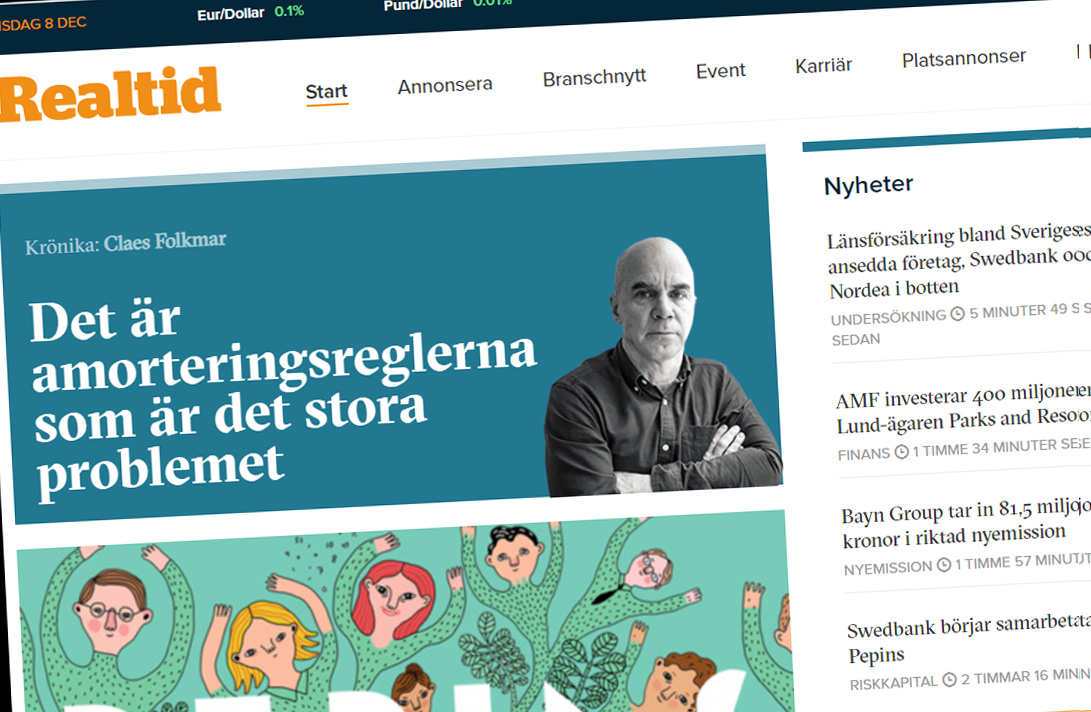[vc_row][vc_column][vc_single_image image=”115804″ img_size=”full”][vc_column_text]Index on Censorship has joined with other press freedom organisations to strongly condemn the legal action that has been filed at the London High Court against the Swedish business and finance publication, Realtid, in connection with their investigation on the financing of energy projects involving a Swedish businessman.
We, along with Reporters Without Borders, Article 19, Media Defence and European Centre for Press and Media Freedom (ECPMF), are concerned about the use of litigation tactics to intimidate journalists into silence. The organisations consider the case, which was filed in November, to be a strategic lawsuit against public Participation (Slapp), which is aimed at intimidating publications, and the journalists who write for them, into silence.
Realtid is being sued by Svante Kumlin, a Swedish businessman, domiciled in Monaco. Realtid had been investigating Kumlin’s group of companies, Eco Energy World (EEW), ahead of an impending stock market launch in Norway, a matter of clear public interest. The investigation began in September when Realtid’s reporters wrote about another stock market launch and discovered off-market sales of shares in EEW. Prior to publishing, the journalists contacted the company for an interview and for reply but did not receive a response.
In October, after publishing the report, the journalists once more tried to contact the people behind the company, including Kumlin to exercise their right of reply. After Kumlin declined to be interviewed, the journalists sent 14 questions that Kumlin could answer in writing, but Kumlin answered that his legal counsel “will respond to you directly”.
This was followed by several emails and attached letters from both a law firm in the United Kingdom, TLT Solicitors, and from Monaco, Gardetto. The firms threatened legal action in both countries if Realtid continued to investigate and to publish its investigations into the company and its owners.
On 20 November, Kumlin and TLT Solicitors filed a defamation lawsuit at the High Court in London against Realtid, its editor-in-chief and the two reporters behind the story.
In their letters the lawyers accuse the editor-in-chief, Camilla Jonsson, and the reporters, Per Agerman and Annelie Östlund, of defamation for publishing false information, and breaching a non-disclosure agreement by sharing, what the lawyers claim to be, confidential information. They also claim that Realtid violated Swedish press ethics and laws. If the latter claim is accurate, there are existing procedures to handle the case through the Swedish Media Ombudsman.
It is our assessment that it is inappropriate to threaten the magazine and the journalists with legal action in two jurisdictions, including by citing large fines and prison sentences.
“The fact that investigative journalists in Sweden, publishing in Swedish, for a Swedish readership could be inundated with threatening legal letters from other jurisdictions is outrageous,” said Jessica Ní Mhainín, senior policy and advocacy officer at Index on Censorship. “Realtid’s courage in the face of these threats has been incredible, but whether or not a newsworthy investigation is published shouldn’t come down to individual courage. We need to put an end to Slapps with legislation.”
“The email conversations between the lawyers and Realtid are unpleasant reading”, says Erik Halkjaer, president of Reporters Without Borders Sweden (RSF Sweden). “It is obvious that these types of legal threats, or Slapps can be used as a threatening tool, as sharp as any weapon, to silence journalists. I strongly condemn the actions of Kumlin, who should know better. The people at Realtid should know that they have our and several other Swedish organisations strong support in this.”
Despite the continuous threats, Realtid has continued its solid journalistic investigations. Between 29 September and 13 November, the newspaper published ten articles on this investigation. Kumlin repeatedly declined to answer questions, despite the reporters having digital recordings and public documents proving the content of their articles.
“We know that over half of the cross-border Slapp suits facing journalists from Europe emanate from London. As anti-Slapp measures are being introduced in Brussels, there is an urgent need for the UK to reform its plaintiff-friendly system in line with its stated commitments to uphold and promote media freedom globally,” said Sarah Clarke, head of Europe for Article 19.
After taking an interest in the coverage of Realtid, the Norwegian financial paper Dagens Naeringsliv started its own investigation on the same story. Shortly after doing so, they too were contacted by TLT Solicitors, who used their legal action against Realtid to issue similar threats.
“Investigative journalism is essential to holding people in positions of power and responsibility to account. Journalists who do this work should not be subject to aggressive legal claims in plaintiff-friendly jurisdictions designed to intimidate and oppress. Any dispute between the parties should be resolved before the appropriate forum, in Sweden,” said Padraig Hughes, legal director of Media Defence.
Norway and Sweden are ranked 1st and 4th out of 180 countries in RSF´s 2020 Press Freedom Index. The United Kingdom is ranked 35th out of 180.
For press inquiries contact:
Jessica Ní Mhainín, [email protected];
Erik Halkjaer, [email protected];
Sarah Clarke, [email protected] [/vc_column_text][/vc_column][/vc_row]






